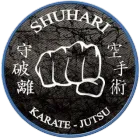Martial Arts vs Self Defence: What's the Difference?

When considering training, many people wonder about the difference between martial arts and self defence. While these terms are often used interchangeably, they represent distinct approaches to combat training, each with unique benefits and applications. Understanding these differences can help you choose the right path for your goals.
What is Self Defence?
Self defence is a focused approach to personal protection that emphasizes practical, real-world scenarios. It's designed to help you escape dangerous situations quickly and effectively, with the main goal being minimizing harm to yourself.
Key Characteristics of Self Defence Training:
- Immediate practical application - practical techniques you can use when you need
- Situational awareness - and if possible avoidance
- Quick escape techniques rather than prolonged fighting
- Simple, gross motor movements that work under stress
- De-escalation tactics and verbal self-defence
- Realistic scenario training based on common attack patterns
Self defence courses typically focus on the most statistically likely threats you might face, teaching you to respond instinctively and effectively.
What are Martial Arts?
Martial arts represent traditional combat systems that have evolved over centuries, offering comprehensive physical, mental, and spiritual development. They provide a structured path of learning that extends far beyond fighting techniques.
Core Elements of Martial Arts:
- Traditional techniques passed down through generations
- Philosophy and mental discipline rooted in ancient wisdom
- Progressive belt ranking system showing long-term development
- Cultural and historical context that enriches understanding
- Character development through consistent training
- Community and mentorship within the dojo environment
At Shuhari Self Defence, we teach techniques from martial arts including Karate, Judo, Kung Fu, Muay Thai and Brazilian Jiu Jitsu, which offer structured learning paths for students of all ages.
Training Focus: Practical vs Traditional
Self Defence Training Focus:
Self defence training prioritizes immediate effectiveness. Students learn:
- How to recognize and avoid dangerous situations
- Simple strikes to important targets
- Basic grappling escapes
- Weapons awareness and defence
- Psychological aspects of confrontation
The goal is to develop confidence and capability in the most practical way, making it ideal for people seeking practical protection skills.
Martial Arts Training Focus:
Martial arts training takes a holistic approach, developing:
- Technical precision through repeated practice
- Physical conditioning and flexibility
- Mental resilience and focus
- Respect and discipline through traditional values
- Long-term skill development over a life time
Our Karate classes exemplify this approach, building "Strong Body, Sharp Mind, Immovable Spirit" through traditional training methods.
Practical Applications: When to Use Each
Self Defence Applications:
Self defence skills are designed for:
- Emergency situations requiring immediate action
- Escaping from attackers as quickly as possible
- Real-world confrontations with unpredictable opponents
- Building confidence in everyday situations
Martial Arts Applications:
Martial arts serve multiple purposes:
- Long-term fitness and health improvement
- Stress relief and mental clarity
- Challenges in tournaments and gradings
- Respect & courtesy and traditional values
- Community building and lifelong friendships
- Personal development and character building
Skill Development Timeline
Self Defence Skill Development:
- Week 1-4: Basic awareness and simple techniques
- Month 2-5: Scenario-based practice and reflex training
- Month 6-12: Advanced situational responses and de-escalation
- Ongoing: Regular practice to maintain skills
Self defence will provide functional capability, making it accessible to everyone regardless of athletic background.
Martial Arts Skill Development:
- Years 1-3: Fundamental techniques and basic conditioning
- Year 4-7: Intermediate skills
- Years 8-12: Advanced techniques and deeper understanding
- Lifetime: Mastery development and teaching capability
Martial arts represent a lifelong journey of continuous improvement and personal growth.
Physical and Mental Benefits Comparison
Self Defence Benefits:
Physical Benefits:
- Improved reaction time
- Basic physical conditioning
- Practical use of strength & impact
Mental Benefits:
- Increased confidence
- Better situational awareness
- Calm under pressure
- Reduced anxiety about personal safety
Martial Arts Benefits:
Physical Benefits:
- Enhanced fitness, strength, and flexibility
- Superior balance and coordination
- Improved technique and precision
- Weight loss and cardiovascular health
- Better timing and accuracy
Mental Benefits:
- Deep focus and concentration
- Discipline and perseverance
- Respect and humility
- Inner peace and confidence
- Mental strength and patience
- Enhanced control and awareness
Which Approach is Right for You?
Choose Self Defence If You:
- Want immediate practical skills
- Are primarily concerned with personal safety
- Prefer realistic scenario training
- Want to learn de-escalation techniques
Choose Traditional Martial Arts If You:
- Seek long-term personal development
- Want to join a community
- Enjoy structured learning and belt progressions
- Are interested in the far eastern culture
- Desire comprehensive fitness and flexibility
- Value philosophical and mental training
The Shuhari Approach: Best of Both Worlds
At Shuhari Self Defence, we believe in combining the best elements of both approaches. Our practical martial arts training incorporates:
- Modern application of traditional systems
- Self-defence techniques from multiple martial arts
- Realistic training scenarios within traditional frameworks
- Progressive skill building that serves immediate and long-term goals
We teach techniques from Karate, Boxing, Wrestling, Krav Maga, Kung Fu, Judo, BJJ, Kickboxing, and Muay Thai, giving students a comprehensive toolkit for both personal protection and martial arts development.
Making Your Decision
The choice between martial arts and self defence isn't always either/or. Many successful practitioners combine elements of both:
For Beginners: Start with self defence to build a strong foundation, then explore martial arts for deeper development.
For Busy Adults: Focus on practical self defence while incorporating martial arts principles for mental discipline.
For Families: Children often thrive in traditional martial arts, while parents might prefer self defence focus.
For Long-term Goals: Begin with immediate self defence needs, then expand into traditional martial arts for ongoing development.
Experience Both at Shuhari Self Defence
Ready to discover which approach suits you best? Shuhari Self Defence offers both practical self defence training and traditional martial arts classes across Slough, Maidenhead, Windsor, Bracknell, Cippenham, Burnham, and Langley.
Our experienced instructors can help you understand the differences firsthand and choose the path that aligns with your goals, schedule, and interests.
Start Your Journey Today
Whether you're drawn to the immediate practicality of self defence or the rich tradition of martial arts, we're here to guide your development. With over 15 years of experience, 23 expert instructors, and 8670 students taught, we've helped countless individuals find their ideal training approach.
Book your beginner's course discount today and discover the difference between martial arts and self defence through hands-on experience.
Contact Shuhari Self Defence at 07739 464005 or visit our website to learn more about our self defence courses and traditional martial arts classes. Experience the difference that proper training makes.
Frequently Asked Questions
Q: Can I learn both martial arts and self defence together?
A: Absolutely! Our integrated approach teaches practical self defence within traditional martial arts frameworks, giving you comprehensive skills.
Q: How long does it take to become effective in self defence?
A: Basic self defence skills can be functional within a year or two, while martial arts mastery takes a lifetime of dedication.
Q: Which is better for children - martial arts or self defence?
A: Children typically benefit more from traditional martial arts, which teach discipline, respect, and structured skill development alongside practical techniques.
Q: Do I need to be fit to start either approach?
A: No! Both self defence and martial arts training will improve your fitness level as you progress. We welcome beginners of all fitness levels.
Ready to start your martial arts or self defence journey? Contact Shuhari Self Defence today for a consultation to determine which approach best fits your goals and lifestyle.








